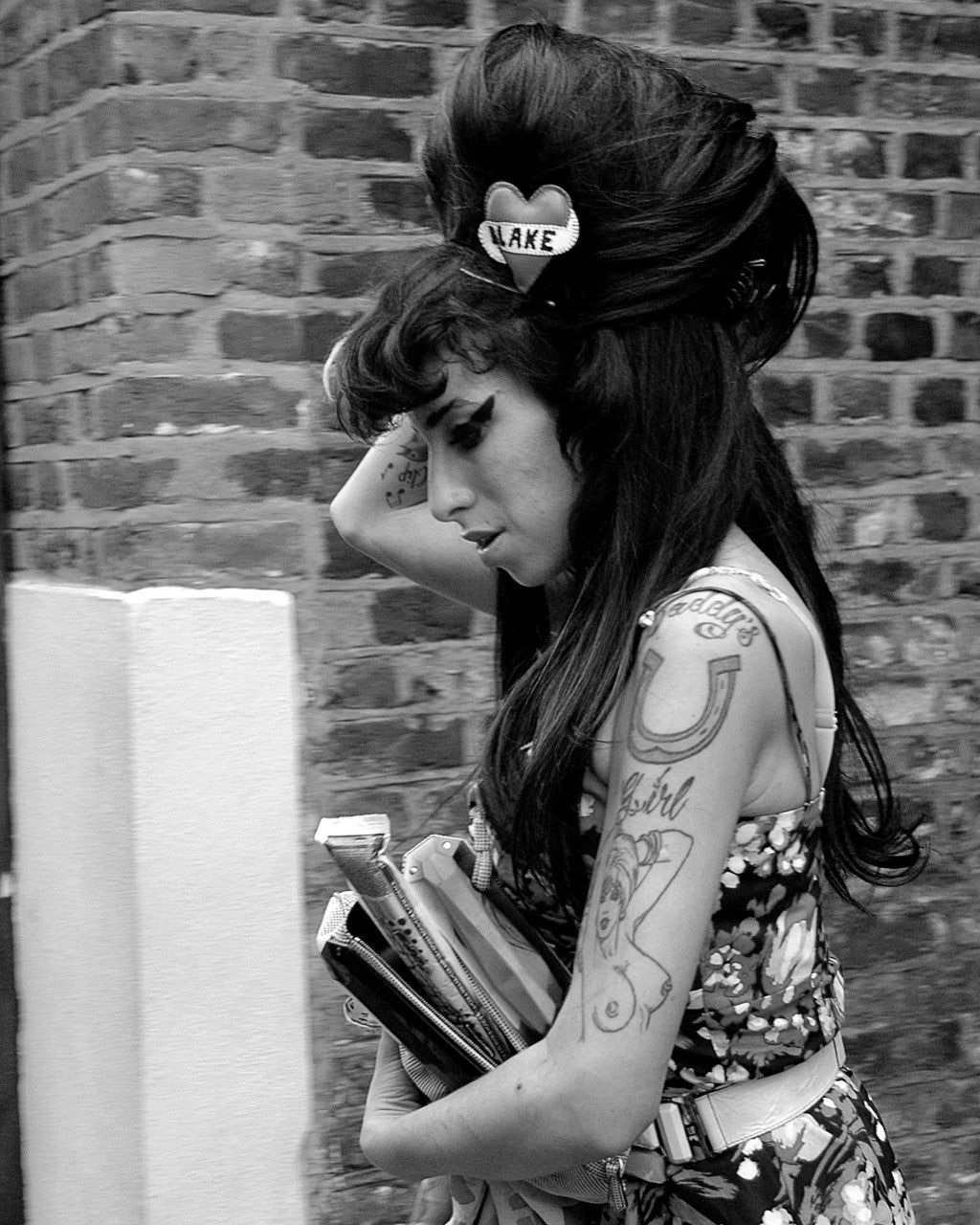‘We thought she was going to beat it’: Amy Winehouse’s stepmother on how the late singer fought her addiction
Exclusive: ‘Quiet periods can be quite dangerous for someone who has an addiction,’ Jane Winehouse tells Maya Oppenheim on the 10th anniversary of the musician’s death


Your support helps us to tell the story
From reproductive rights to climate change to Big Tech, The Independent is on the ground when the story is developing. Whether it's investigating the financials of Elon Musk's pro-Trump PAC or producing our latest documentary, 'The A Word', which shines a light on the American women fighting for reproductive rights, we know how important it is to parse out the facts from the messaging.
At such a critical moment in US history, we need reporters on the ground. Your donation allows us to keep sending journalists to speak to both sides of the story.
The Independent is trusted by Americans across the entire political spectrum. And unlike many other quality news outlets, we choose not to lock Americans out of our reporting and analysis with paywalls. We believe quality journalism should be available to everyone, paid for by those who can afford it.
Your support makes all the difference.“If I die tomorrow, I would feel fulfilled.” These are the words Amy Winehouse uttered in an interview after releasing her first album Frank in 2003. Fast-forward almost two decades and Amy has been dead for exactly 10 years.
Paramedics discovered the singer in her flat in Camden Town in north London on the afternoon of 23 July 2011. She was in her clothes, empty bottles of vodka sprawled across the floor and her laptop resting on her bed. An inquest into her death later found she had died of alcohol poisoning after going on a drinking binge after a stint of abstinence.
The story of her downfall is a tragic one. After being relentlessly harangued by the media and battling with the merciless demon of addiction, Amy joined the crassly named “27 Club”. Aka the collective moniker given to fellow artists such as Jimi Hendrix, Kurt Cobain, Janis Joplin, Jim Morrison, and many others, who died at the age of 27.
But according to Jane Winehouse, Amy’s stepmother, the story of her daughter’s death is profoundly misconstrued and distorted. Jane, who is married to Amy’s father Mitch Winehouse, explains that they were shocked to learn she had died. They had believed she was managing to overcome her struggle with addiction.
“She did get off drugs for a couple of years and the alcohol sadly kicked in,” the 54-year-old, who knew Amy since she was two-years-old, told The Independent. “She did that pretty much herself. She thought she could do the same with alcohol. Towards the end, the gaps – the periods of sobriety – were getting longer. We thought she was going to pull through. We thought she was going to beat it.”

She argues this is something that is often overlooked – adding that people wrongly assume Amy just got worse and worse. “In actual fact, she was doing really well. In her last six months or so, she really improved. She was starting to think about work again.”
And according to Jane, it was when Amy was working that she least struggled with addiction. Her habit saw her frequently using heroin and crack cocaine.
“To be honest with you, the worst times were the down times,” says Jane, who is managing trustee and co-founder of the Amy Winehouse Foundation, alongside Amy’s parents. “When she had focus and purpose in her life, which for her, of course, was music, was generally when she was better. Sadly there were times when that didn’t work out and very publicly it all went wrong. Most of the time, work really helped her. Quiet periods can be quite dangerous for someone who has an addiction.”
If Amy was anything, she was indefatigably driven. A snippet from an application form she submitted for the eminent Sylvia Young Theater School at the age of 12, perfectly encapsulates this unwavering ambition. “But mostly I have this dream to be very famous,” Amy writes. “To work on stage. It’s a lifelong ambition. I want people to hear my voice and just... forget their troubles for five minutes.”
Enjoy unlimited access to 100 million ad-free songs and podcasts with Amazon Music
Sign up now for a 4 month free trial (3 months for non-Prime members)
Enjoy unlimited access to 100 million ad-free songs and podcasts with Amazon Music
Sign up now for a 4 month free trial (3 months for non-Prime members)
Just 19 when she signed her first record deal, she went on to achieve her dreams, with Back to Black – an album about her rollercoaster relationship – winning her five Grammy awards.
But this same determination appears to have also made it very difficult to convince Amy to relinquish the booze and the drugs. “I talked to her and had one-to-one conversations,” Jane reflects. “Amy wasn’t the sort of person you could console in any way. She was a very strong-willed person. She felt she could do things on her own.”

Jane says they tried to get Amy to go to rehab but she would simply go inside before walking out again. In her view recovery from addiction is something which people have to decide to do themselves.
“You speak to anyone that is in recovery or is still struggling with their issues, it has got to come from them,” she adds. “We get loads of calls from family members. From parents, brothers, sisters, children about their own parents. And it is not enough. It has to be the person themselves that wants to engage. If love could cure it, it wouldn’t be a problem.”
But she said there is a terrible dearth of support available for people struggling with addiction in the UK. Later on when we get to the subject of the documentary, she sounds instantly exhausted.
“Do we have to talk about the film?” she asks. “There was some lovely footage of Amy on there. It did capture her personality in places. But it was a very, very narrow view. I think there was a story there before they even did an interview. I think they had already decided what the narrative was going to be. The sad thing is so many people that cared about Amy and were really close to her were put off with that narrative they were sensing.”
She summed up her view of the film by saying she was not a fan of it. The family voiced criticism of the documentary about the late singer’s life, which was titled Amy, at the time, stating it “is both misleading and contains some basic untruths”. Mitch – the man to whom Amy’s “Daddy’s Girl” tattoo on her left arm is dedicated – is shown saying his daughter didn’t need rehab in the film but he states the clip was edited.
Turning her attention to creativity, interestingly and perhaps unsurprisingly, Jane thinks there is often a correlation between addiction and creativity. She notes many people she has met who have struggled with addiction have been very creative people – adding that many of the women at recovery centre for women fighting drug and alcohol addiction set up in Amy’s memory are very musical or artistic. Jane is involved in running Amy’s Place, in Hackney, east London, and is one of the only recovery centres in the UK solely for women.
Of course, Amy proves this theory about creativity. And Jane saw Amy’s creativity first-hand when she was just a young girl, recalling her zeal for music when she could come to do radio sessions at Whipps Cross Hospital with her on a Saturday night.

“She loved it,” Jane recalls. “She would get immersed. You would get an old lady that would request a song and she would be really interested in the story of why that song was chosen. It was vinyl then. She would read the covers. She used to read about music as well. I had a lovely relationship with her. Amy was just a normal, bright, intelligent kid growing up. Obviously, she had this amazing talent which became more and more evident.”
But Jane is keen to stress the point that the “real Amy” never disappeared despite her battle with addiction. “Anyone that knows anybody who is struggling with addiction knows an obvious consequence of that is there are changes in mood and motivation,” she adds. “The real Amy was still there. When she was sober, she was just like the old Amy. But obviously, substances do affect people.”
If you are experiencing feelings of distress and isolation, or are struggling to cope, The Samaritans offers support; you can speak to someone for free over the phone, in confidence, on 116 123 (UK and ROI), email jo@samaritans.org, or visit the Samaritans website to find details of your nearest branch.
For services local to you, the national mental health database - Hub of Hope - allows you to enter your postcode to search for organisations and charities who offer mental health advice and support in your area.
Reclaiming Amy is on BBC Two at 9pm on Friday 23 July


Join our commenting forum
Join thought-provoking conversations, follow other Independent readers and see their replies
Comments